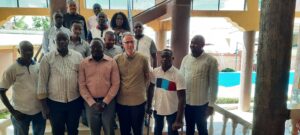
Kufatilia se transforme en réseau de la société civile, désormais doté d’une nouvelle plateforme de suivi des incidents miniers.
Première réunion annuelle du nouveau réseau Kufatilia En novembre 2023, les partenaires Kufatilia se sont rendus à Bunia et Bukavu, dans l’est de la République
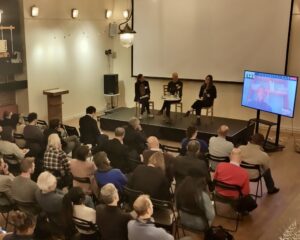
IPIS Event: Congolese cobalt, EU regulations, and direct investment
On the 30th of November, IPIS hosted its annual panel discussion, this time on current challenges facing the cobalt sector in the Democratic Republic of
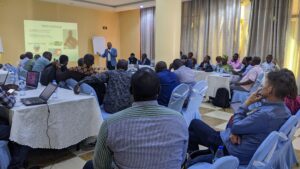
Sharing the results of two years of research into eastern DR Congo’s artisanal mining sector
Since 2021 and in partnership with USAID and the Congolese Ministry of Mines (through its technical service SAEMAPE), IPIS has been undertaking a large-scale project to map
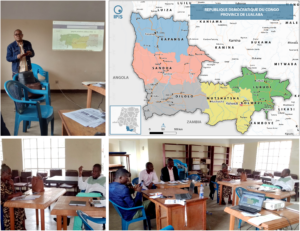
Kufatilia désormais actif dans la province du Lualaba, République Démocratique du Congo
Après une mise en œuvre réussie dans les provinces productrices de 3TG du Nord-Kivu, du Sud-Kivu, de l’Ituri, et du Haut-Uele, IPIS étend son système de signalement et de suivi des incidents Kufatilia à la province du Lualaba, riche en cobalt.

Kufatilia désormais actif dans la province du Lualaba, République Démocratique du Congo
Après une mise en œuvre réussie dans les provinces productrices de 3TG du Nord-Kivu, du Sud-Kivu, de l’Ituri, et du Haut-Uele, IPIS étend son système de signalement et de suivi des incidents Kufatilia à la province du Lualaba, riche en cobalt.
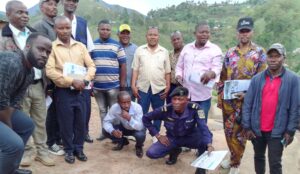
Feedback session: Sharing the results of the data collected in Walungu, South Kivu
Since 2021, IPIS undertakes another large-scale mapping effort of artisanal and small-scale mining (ASM) sites in the eastern Democratic Republic of Congo (DRC), – in partnership with USAID and
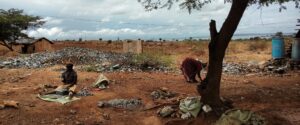
New 5-year project aiming to empower communities and civil society to foster justice and human rights in Tanzania’s natural resource sector
In 2022, IPIS launched new work on the human rights impact of the natural resource sector in Tanzania. Our new five-year project “Empowering Tanzanian communities
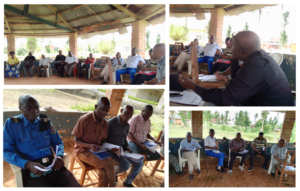
Feedback session: Sharing the results of the data collected in Shabunda
Since 2021, IPIS undertakes another large-scale mapping effort of artisanal and small-scale mining (ASM) sites in the eastern Democratic Republic of Congo (DRC), – in partnership with USAID and
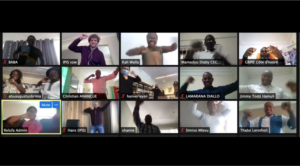
Les temps forts de la CSC PK en 2021
2021 a été, malgré les restrictions liées au COVID-19, une année très chargée pour la Coalition de la Société Civile du Processus de Kimberley (CSC
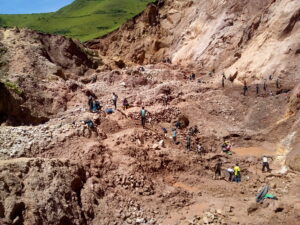
New large-scale mapping project of artisanal and small-scale mining in eastern DRC launched
Over the next two years, IPIS – in partnership with USAID, Tetra Tech and the Congolese Ministry of Mines (SAEMAPE) – will undertake a large-scale

WEBINAR ALERT: Conflict diamonds are real, real talk is rare & affected communities want answers
On 20 October 2021, the Kimberley Process Civil Society Coalition (KP CSC) is convening its second webinar of 2021 in the conversation on “Conflict diamonds

ONLINE EVENT: The European Regulation on Responsible Mineral Sourcing: what are the lessons learned so far?
The main takeaways from the workshop and the conference have been summarized in a report that can be downloaded here. From 21 to 28 September
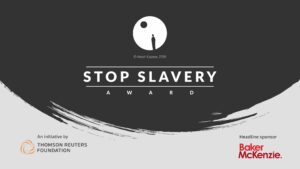
Kufatilia remporte le prix Stop Slavery Award 2021
Le prix Stop Slavery 2021 décerné par la Fondation Thomson Reuters a été attribué à Ulula pour le projet Kufatilia, dans la catégorie “collaboration”. Kufatilia
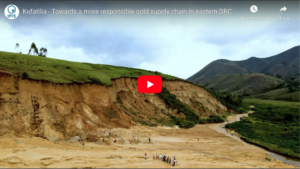
Kufatilia – Vers une chaine d’approvisonnement en or plus responsable dans l’est de la RDC
L’or exploité de manière artisanale et à petite échelle est largement utilisé dans l’industrie électronique. Cependant, l’or est aussi le minerais de conflit prédominant dans
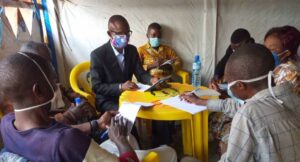
Soutenir les coopératives minières à Beni
La population du territoire de Beni est victime de violences mortelles depuis 2014, suite à la présence de groupes armés nationaux et étrangers tels que

Transparent, indépendant and participatif : Comment une plateforme peut-elle soutenir un réseau d’organisations de la Société Civile au Congo ?
A l’occasion du Forum GeONG 2020, IPIS a présenté son projet Kufatilia lors de la session “Lighting talks”. Dans une vidéo, IPIS a expliqué comment
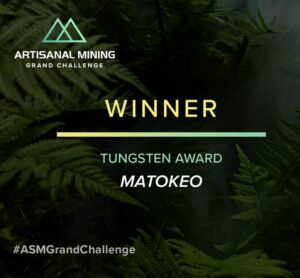
IPIS’ project Matokeo among the winners of the ASM Grand Challenge
On October 1st, IPIS and its partner Ulula were awarded a $118,000 price for their project “Matokeo” during the ASM Grand Challenge Award Ceremony.
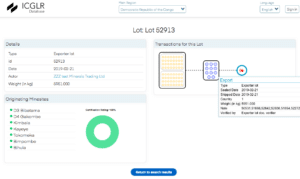
IPIS’ successful handover of the Regional Mineral Database to ICGLR
IPIS finalised the International Conference on the Great Lakes Region (ICGLR) Regional Database on Mineral Flow and successfully handed it over to the organisation. Once operational, this web-based database will be gathering and updating data on mine sites, chain of custody, and exporters.
IPIS on BNNR’s Training Day: “Natural Resources: Stakes, Consequences, Alternatives”
On Saturday, October 3rd 2020, the Belgian Natural Resources Network (BNNR) will welcome you for a day of training on the stakes of natural resources, the consequences of their exploitation and the alternatives to be built.

Brochure Kufatilia
IPIS supports an independent, transparent and participatory platform for incident reporting and community empowerment in responsible sourcing in the eastern DRC artisanal mining sector. Discover what Kufatilia is all about.

Mapping ASM sites in the Central African Republic: Official Presentation in Bangui
In January 2020, IPIS presented the results of its diagnostic report and mapping of artisanal and small-scale mining (ASM) sites and gold supply-chains in western

« L’incapacité et le refus de reformer le système de certification des diamants de conflits »
Aujourd’hui, un autre cycle de trois années de réforme du Processus de Kimberley (PK) a pris fin sans changement significatif. Les États participants ne se
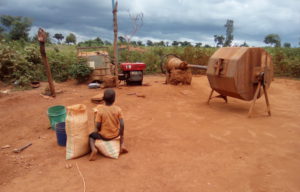
11 December 2019 – IPIS presents “The social, economic and human rights impact of mining: the case of Tanzania”
IPIS kindly invites you to a presentation of its work on mapping the social, economic and human rights impact of mining in Tanzania. IPIS will
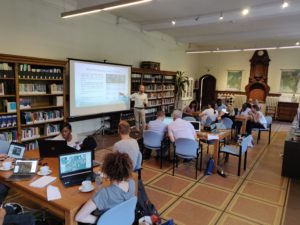
IPIS welcomes University of Antwerp Summer School for workshop on artisanal diamond mining
On August 28th, 2019, 21 students from the University of Antwerp’s ‘Mine to Finger’ Summer School on diamonds were engaged on “The use of digital

Mapping ASM sites in the Central African Republic: An update from our field teams
Since February 2019, IPIS is partnering with the Artisanal Mining and Property Rights (AMPR) project from the U.S. Agency for International Development (USAID) to increase
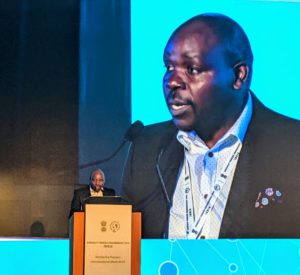
« Tous les yeux tournés vers le processus Kimberley, désespérément à la recherche d’une réforme »
24 juin 2019 La société civile demande aux participants de prendre leur responsabilité dans la prévention des conflits liés aux diamants. Cette semaine a été
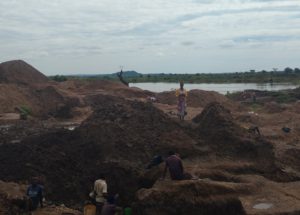
Le Processus de Kimberley doit progresser dans la négociation de la réforme sur les violences liées aux diamants ou risque des pertes de revenus et de crédibilité
14 juin 2019 Alors que l’Inde se prépare à accueillir à Mumbai (17 au 21 juin), la dernière réunion intersessionnelle du cycle de réforme du
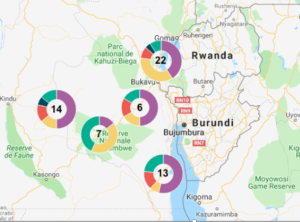
Plateforme de suivi des incidents issus de l’artisanat minier dans l’est de la RDC.
Depuis fin 2018, témoins et victimes peuvent rapporter les incidents et accidents en lien avec la production, le transport et le commerce de minéraux issus
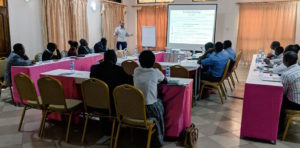
Data sharing on the socio-economic and human rights impact of mining in Tanzania
Tanzania, May 2019 Since January 2017, IPIS has been working on a project to map the socio-economic and human rights impact of mining in northwest
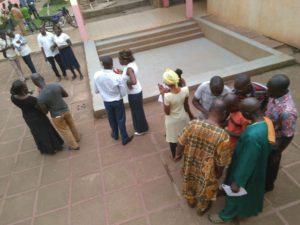
New project of mapping artisanal and small-scale mining sites in the Central African Republic
Following a successful training in Bangui with members from civil society organizations and field officers from the Kimberley Process focal point at the Ministry of

Kufatilia : un nouveau système de Suivi des Incidents de l’Or (SIOr)
« Aujourd’hui un éboulement a fait un mort dans un site minier artisanal près de Numbi. » Voici le type d’information que reçoivent régulièrement par
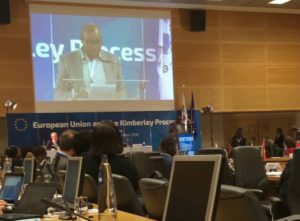
La coalition de la Société civile du PK déçue par la résistance à la réforme du Processus de Kimberley
16 novembre 2018 La Coalition de la Société Civile du Processus de Kimberley (CSC PK) a fortement insisté dans le sens d’une réforme lors de
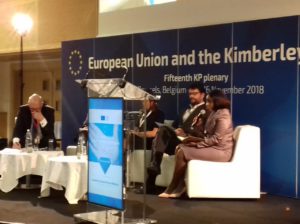
La coalition de la Société Civile du Processus Kimberley demande à tous les membres d’améliorer la gouvernance globale des diamants.
14 novembre 2018 Cette année, la réforme est prioritaire dans l’agenda de la session plénière du processus Kimberley présidé par l’UE. Le processus Kimberley, autrefois

22 November – IPIS panel discussion on the Central African Republic
Central African Republic: A Conflict Mapping IPIS kindly invites you to a panel discussion on the conflict in the Central African Republic on Thursday November
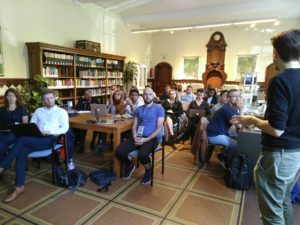
IPIS welcomes UA Summer School students for workshop on responsible sourcing using IPIS maps
On September 6th, 30 students from the University of Antwerp ‘Mine to Finger’ Summer School on diamonds participated in a responsible sourcing workshop organised by
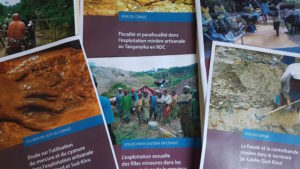
Strengthening local voices: discover IPIS’ partner publication series “Voices from the South”
Since 2017, IPIS has been closely collaborating with civil society actors from central and east Africa who want to share their perspective on subjects related
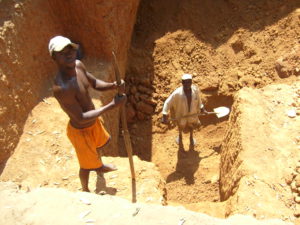
Réunion intersessionnelle du Processus Kimberley : la Coalition de la Société Civile demande une réforme significative de la définition des diamants de conflits
29 juin 2018 Lors de la réunion intersessionnelle du Processus Kimberley qui s’est tenue à Anvers du 18 au 22 juin, la Coalition de la
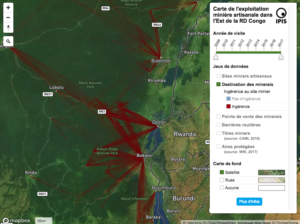
New data on mining sites and roadblocks on IPIS’ upgraded DRC interactive web map
IPIS launches a major update of it’s DRC webmap displaying data on more than 2400 artisanal mining sites in eastern DRC and more than 800
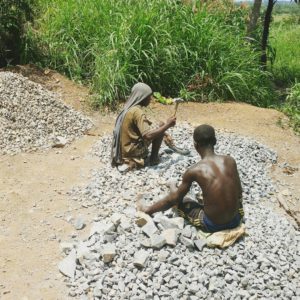
Mobile data collection on mining sites in Kigoma, Tanzania
IPIS is undertaking a large-scale mobile data collection exercise on operational, socio-economic and human rights aspects of artisanal and industrial mining in northwest Tanzania. Building
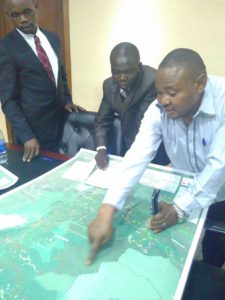
Training and workshop on mapping artisanal mining in Eastern DRC
(French version below) 2373 Mining sites visited, including 470 visits in the last thirteen months. 300 Roadblocks visited on a total of 798 mapped roadblocks.
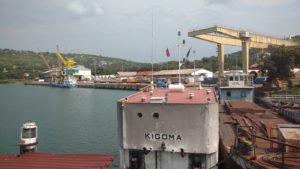
Improving monitoring, research and dialogue on Business and Human Rights in Tanzania
IPIS was in Dar es Salaam to launch its new project on Business & Human Rights with the Tanzanian Commission for Human Rights and Good
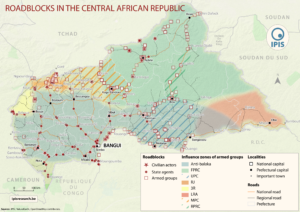
Roadblock rebels: IPIS maps important mechanism of conflict funding in Central Africa
IPIS puts roadblocks on the map as key mechanism of conflict funding besides natural resources, revealing its devastating scope in funding armed actors in Democratic

New Mapathon with special focus on DRC National Parks at IPIS
IPIS, Missing Maps and OpenStreetMap Belgium organise another Missing Maps Mapathon on Wednesday December 6, in the IPIS library. Why do we organise this? NGOs working
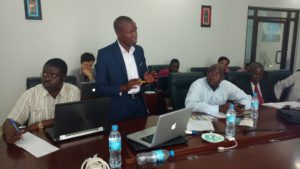
Training and workshop on mapping the socio-economic and human rights impact of mining in northwest Tanzania
On Monday 23 October, IPIS organised a workshop in Mwanza to launch the data collection phase of its mapping project on the socio-economic and human
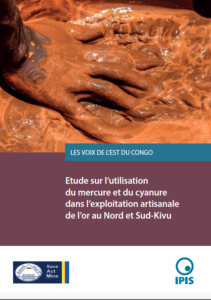
IPIS committed to help end mercury poisoning from artisanal gold mining
From 24 to 29 September 2017 the first meeting of the Conference of the Parties to the Minamata Convention on Mercury will take place in
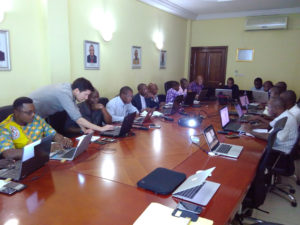
Capacity enhancement workshop on cartography with DRC mining authorities
Capacity enhancement workshop on cartography with DRC mining authorities In the framework of its long standing partnership with DRC mining authorities, IPIS held a workshop
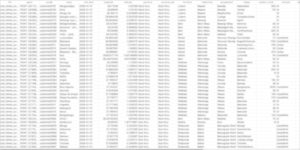
IPIS opens up its data!
Data collection on peace, development and human rights is an essential part of the research work we do at IPIS. Because we believe in the
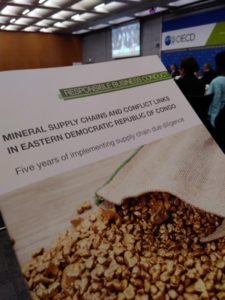
IPIS au Forum de l’OCDE sur la chaine d’approvisionnements responsable en minerais
Entre le 2 et 4 mai 2017, IPIS aura le plaisir de participer au 11em Forum CIRGL-OCDE-Groupe d’experts des Nations Unies sur les chaines d’approvisionnement
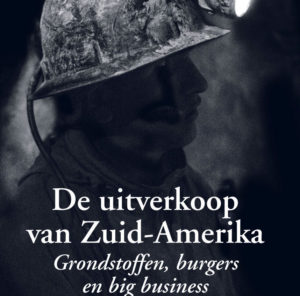
Boekvoorstelling Raf Custers “De uitverkoop van Zuid-Amerika”
Op 11 mei 2017 om 19u00 is Raf Custers te gast bij IPIS om zijn boek “De uitverkoop van Zuid-Amerika” voor te stellen. Na een

IPIS hosts new Missing Maps Mapathon with special focus on DRC National Parks
IPIS, Missing Maps and OpenStreetMap Belgium organise another Missing Maps Mapathon on Wednesday April 26, in the IPIS library. Why do we organise this? NGOs working in
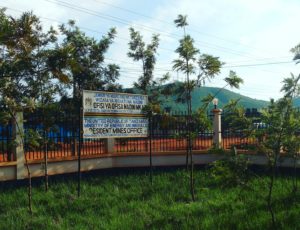
New IPIS project on mining, human rights and digitalization in Tanzania
From late February to early March, two IPIS researchers were in Tanzania to lay the foundations for a new project funded by the Belgian development
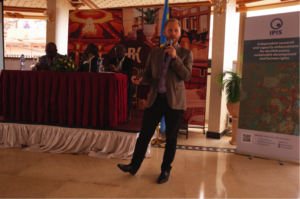
Launch of SAESSCAM database on artisanal and small-scale mining
On February 23rd, IPIS presented in Kinshasa the results of a two years project done in partnership with Pact and Estelle Levin Ltd to support
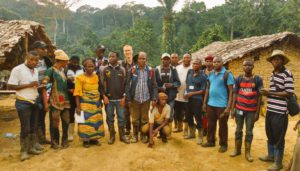
Training on cartography and artisanal mine site inspections in Mambasa
French version below – version française ci-dessous Training on cartography and artisanal mine site inspections – Mambasa, Ituri, DRCongo From 10 to 14 December 2016,
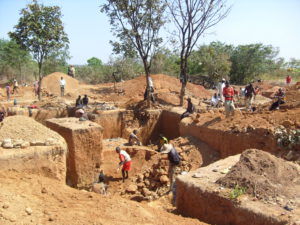
Het conflict in de Centraal-Afrikaanse Republiek in kaart gebracht.
IPIS organiseert op dinsdag 20 december een filmvoorstelling en panelgesprek over het aanhoudende conflict in de Centraal-Afrikaanse Republiek. De Centraal-Afrikaanse Republiek (CAR) was de voorbije jaren het toneel
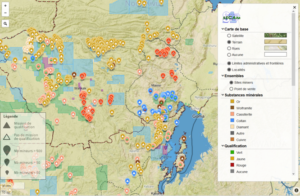
SAESSCAM database on artisanal and small-scale mining
As part of a project to support good governance in the artisanal and small-scale mining sector in the Democratic Republic of Congo (DRC), IPIS has
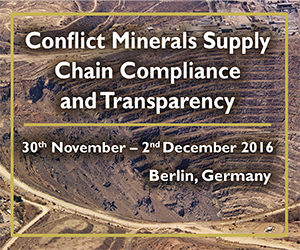
Forum on Conflict Minerals Supply Chain Compliance and Transparency (30 Nov – 2 Dec 2016)
Business Intelligence Services (BIS group) announces the Conflict Minerals Supply Chain Compliance and Transparency Forum taking place on 30thNovember – 2nd December 2016, in Berlin,
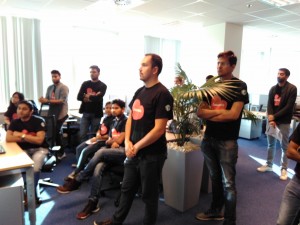
A fresh look at IPIS data during the DataMinds Analytic-A-Thon
IPIS was one of the NGO’s participating in the first Belgian DataMinds Analytic-A-Thon in the weekend of 22 October. The Analytic-A-Thon is a new event
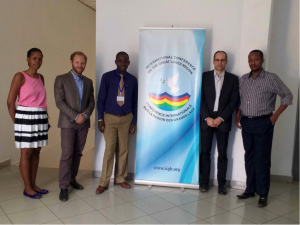
Design of the ICGLR regional database on mineral flows
The Executive Secretariat of the International Conference on the Great Lakes Region (ICGLR), with the financial support of Partnership Africa Canada (PAC), has commissioned a
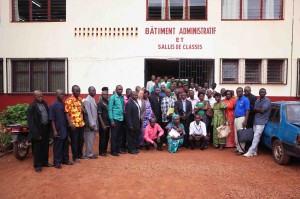
Bonne gouvernance des ressources naturelles: IPIS / DPDDA Atelier pour la société civile, Bangui
Du 29 juin au 1er juillet 2016 IPIS a animé un atelier pour 25 organisations locales de la société civile à Bangui (République centrafricaine). (English below) La
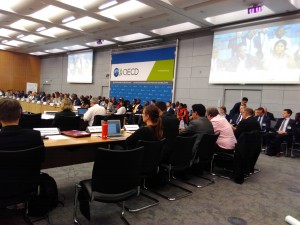
OECD Forum on Responsible Minerals
Last week, three of our researchers were in Paris to represent IPIS at the 10th ICGLR-OECD-UN GoE Forum on Responsible Mineral Supply Chains. IPIS presented
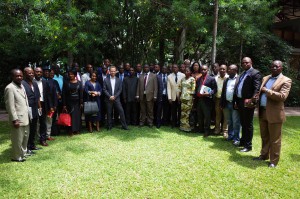
Presentation of SAESSCAM database on Artisanal and Small-scale Mining
From November 17 to 19, IPIS presented its work during a multi stakeholder meeting in Kinshasa as part of a project to support artisanal and
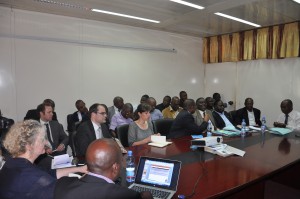
Exploitations artisanales et à petite échelle en RD Congo
– English below – Du 23 au 26 février, IPIS a participé au séminaire de lancement d’un nouveau projet “d’Elaboration d’un document stratégique sur les
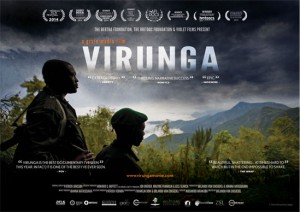
Op 17 november 2014 organiseert IPIS een voorstelling van de documentaire Virunga, in Filmhuis Klappei in Antwerpen.
Virunga is een nationaal park in het oosten van de Democratische Republiek Congo. Doordat het park tegen de grens van Uganda en Rwanda ligt moeten

